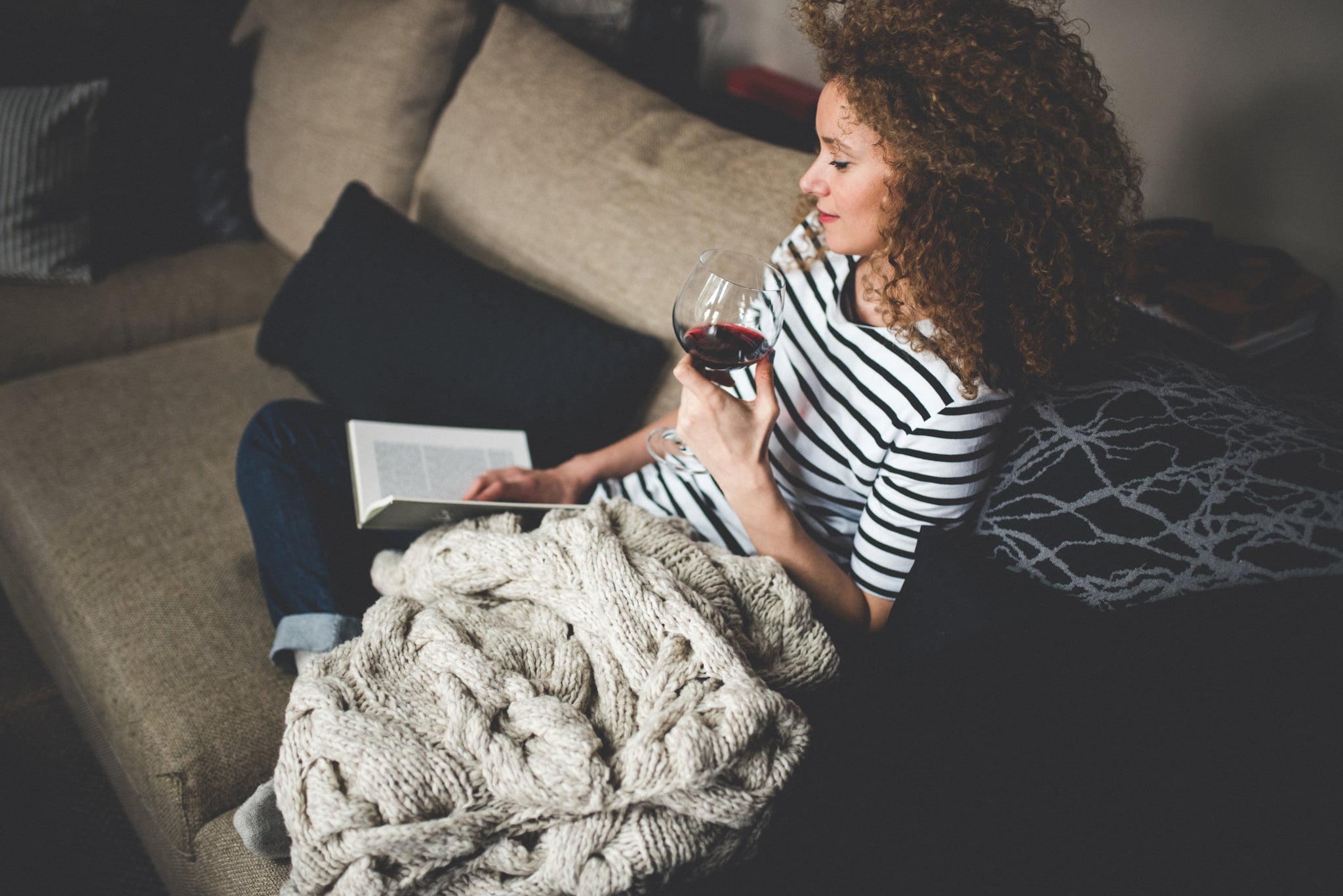
If you have trouble falling asleep [1], it can be tempting to have a glass (or two) of wine [2] before bed. Insomnia is often accompanied by restlessness and anxiety [3], and alcohol can make you feel drowsy and relaxed [4] — an ideal combination when you desperately need to wind down. Having a nightcap seems like an easy, harmless solution, but unfortunately it's not that simple.
"Alcohol might make it easier to initially fall asleep, but it can have a negative impact on the overall quantity and efficiency of sleep," Julia Samton [5], MD, a board-certified psychiatrist and neurologist, told POPSUGAR.
How Does Alcohol Affect Quality of Sleep?
Kent Smith, DDS, a dental sleep specialist and president of the American Sleep and Breathing Academy [7], said that, although having a few drinks before bed may help you fall asleep more quickly, alcohol-induced slumber isn't as refreshing.
"It takes about two hours for a drink to completely metabolise, and during the process, you're not getting the deep sleep you should," Dr. Smith explained. "In addition, alcohol can also lead to frequent waking to get up and use the restroom and an increased risk for sleepwalking [8]."
Both doctors said that drinking alcohol before bed can also throw off the body's circadian rhythm [9] (or biological clock). "By disturbing the natural sleep-wake cycle, alcohol interferes with our normal circadian rhythms," Dr. Samton said. Sleep is disrupted on a night of overindulgence and, as a result, it may produce a rebound effect on the quality of sleep in the nights that follow.
Are There Other Risks Associated With Drinking Before Bed?
Consistently consuming alcohol before bed can cause sleep problems or make existing ones worse. "[People] can experience difficulty falling and staying asleep, poor sleep quality, and daytime sleepiness," Teofilo L. Lee-Chiong [11], MD, a pulmonologist in the Section of Sleep Medicine at National Jewish Health, told POPSUGAR. He explained that alcohol can also worsen snoring and abnormal breathing during sleep in people with obstructive sleep apnea [12], and increase symptoms in those suffering from restless leg syndrome.
Dr. Samton said that, although alcohol does not directly cause sleep apnea, it can cause weight gain and obesity, which are common risk factors [13]. Additionally, "for those with existing sleep apnea, it can exacerbate their condition and prevent them from remembering to use their continuous positive airway pressure (CPAP) machine," she told POPSUGAR.
If you're having trouble sleeping, your best bet is to establish a healthy nighttime routine [14] and focus on improving your sleep hygiene [15]. It may not solve your sleep problems instantly, but in the long run you'll be more likely to consistently get full nights of quality sleep.

